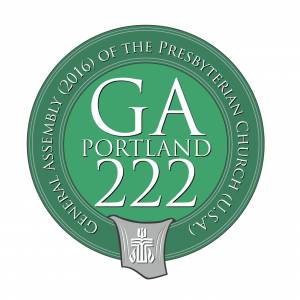Social Justice Issues Committee to confront wide range of recommendations, including changes to the future of social witness policy proposals
by Erin S. Cox-Holmes | General Assembly News Team | Special to Presbyterian News Service
 The charge to the Social Justice Issues Committee is clear. It is to consider matters related to the concerns of the church in national affairs, national military matters and matters relating to righteousness and justice of persons/organizations.
The charge to the Social Justice Issues Committee is clear. It is to consider matters related to the concerns of the church in national affairs, national military matters and matters relating to righteousness and justice of persons/organizations.
How to accomplish this tall order is far more murky. When Committee 11 begins their work at the 222nd General Assembly of the Presbyterian Church (U.S.A.) meeting June 18-25, 2016 in Portland, Oregon, they will be facing a marathon agenda of 26 overtures on social justice matters, plus summaries and self-study reports from GA committees and agencies.
For starters, the Presbytery of the Foothills believes it is time to change altogether how the PC(USA) forms social policy witness. Overture 11-01 supports the engagement of Presbyterians in issues of social justice, economics, and politics. But it calls for an end to “divisive, up-or-down, yes-or-no positions on partisan issues.” Instead, the overture calls upon the denomination to learn and pray about issues and to become engaged locally. If the overture is adopted, any proposed social witness policy would require a concurrence of one-third of presbyteries before coming to the General Assembly for consideration.
Overture 11-02, also from Foothills, urges that for the next three General Assemblies, the Advisory Committee on Social Witness Policy (ACSWP) “shall focus its attention on generating discussion in the presbyteries about any social witness policy concerns that arise.” If adopted, the ACSWP would not generate social witness policy, but instead would facilitate any social witness policy proposals to arise from the presbyteries. Proponents believe that generating conversations could move towards more consensus reflecting the wisdom of the whole church. Both of the Foothill overtures are recommended for disapproval by ACSWP and other advisory groups.
On the other side of the spectrum, a number of overtures call upon the PC(USA) to take stands on a plethora of social witness policy issues. Some involve broad calls to new engagement in the social causes of our times. The Presbytery of Carlisle calls upon the PC(USA) to be a “church committed to the Gospel of Matthew 25,” focusing upon the poor locally and globally.
The Presbytery of John Knox argues for resources to combat white privilege, while the Presbytery of Baltimore advocates for a six year plan to dismantle racism. In a similar theme, the Presbytery of Giddings-Lovejoy is advocating for a new civil rights movement.
Apology for harm done is the focus of several overtures. The Presbytery of New York City calls for admission of harm and apology to LGBTQ/Q Members of the PC(USA), and their family and friends. The Presbytery of Baltimore seeks an apology to Native Americans, Alaska Natives, and Native Hawaiians.
In addition, suggested policies and recommendations from agencies and committees of the General Assembly will come to the committee on a range of topics, including human trafficking, facing racism, opposing therapies purported to change sexual or gender identity, and ending the war on drugs.
Other overtures from presbyteries are focused on:
- Commitment to play an Active Part in the Global Response to the HIV/AIDS Epidemic
- Advocacy against factory farming
- Election protection and integrity in campaign finance
- Better serving for those living with HIV/AIDS
- Addressing the economic crisis in Puerto Rico
Summaries of the work of the Advisory Committees on Racial Ethnic Concerns, Social Witness Policy and Women’s Concerns are also on the agenda.
Matters related to Social Justice Issues will be considered by Assembly Committee 11. Erin Cox-Holmes, executive presbyter for the Presbytery of Donegal and regular contributor to Presbyterian News Service, will cover the committee for the General Assembly Communication Center.
![]() You may freely reuse and distribute this article in its entirety for non-commercial purposes in any medium. Please include author attribution, photography credits, and a link to the original article. This work is licensed under a Creative Commons Attribution-NonCommercial-NoDeratives 4.0 International License.
You may freely reuse and distribute this article in its entirety for non-commercial purposes in any medium. Please include author attribution, photography credits, and a link to the original article. This work is licensed under a Creative Commons Attribution-NonCommercial-NoDeratives 4.0 International License.